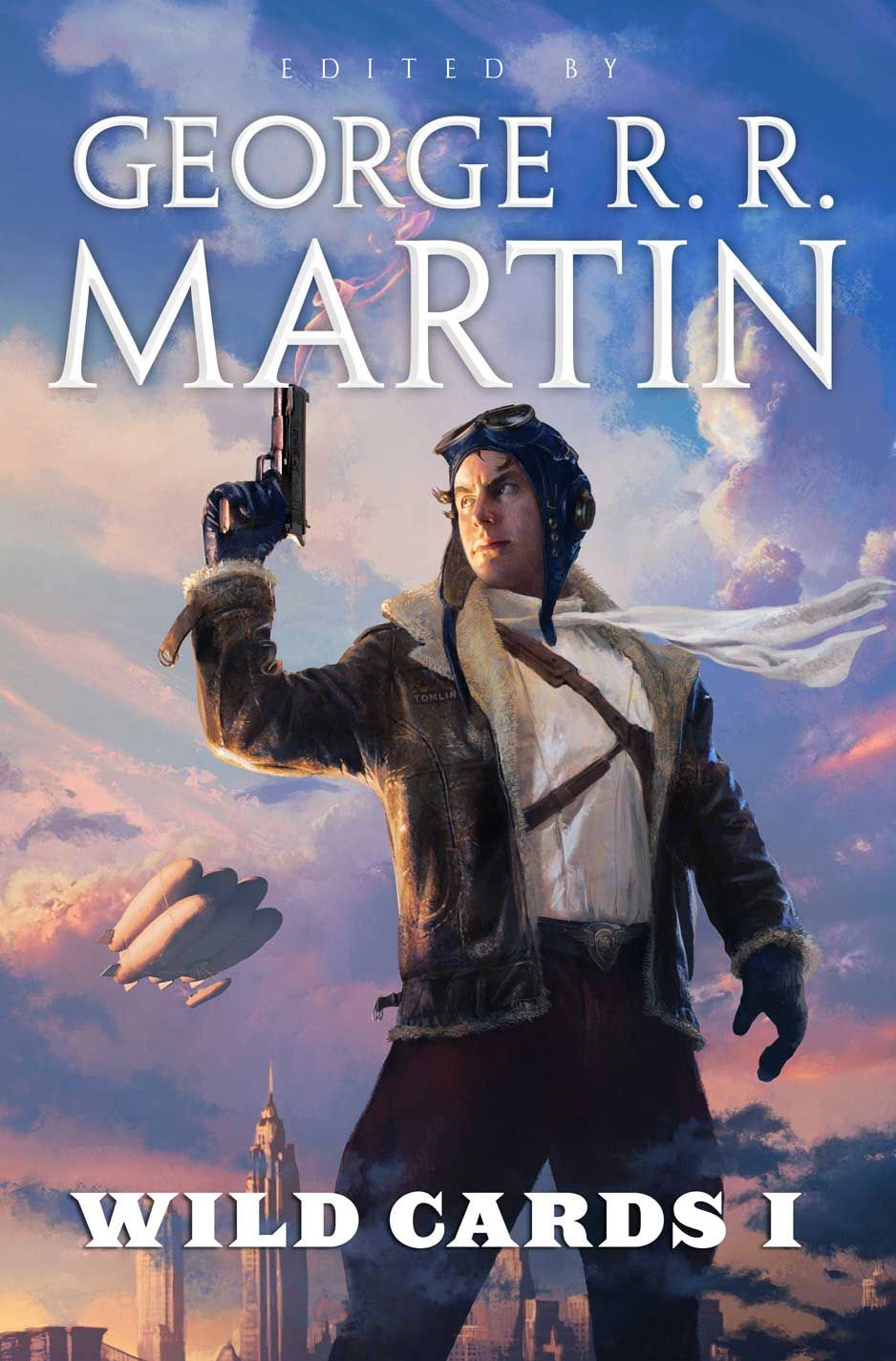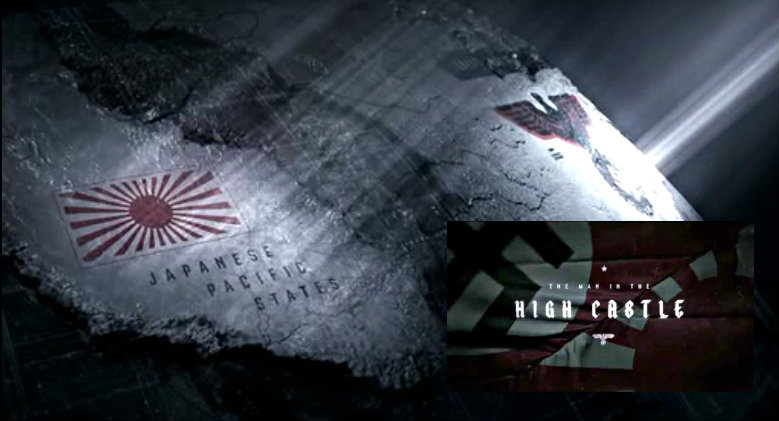I couldn't find the book among his others, in the fiction section. Disappointed, I asked if they might be able to order a copy. The answer surprised me. You see, they had the book in stock, but it wasn't located with the other P.K. Dicks.
It was on the bestsellers shelf!
When the bookstore employee handed me the book, I asked, "Isn't this a pretty old book to be on the bestsellers list?"
"Well, yes," she responded. "But, then the TV series came out, and now everybody wants to read the book."
 I nodded and eked out a chagrined smile. You see, I like Philip K. Dick and I have for a long time. I've read a lot of his work, both novels and short stories. While some of it may be a bit too metaphysical for my taste, I really do enjoy his science fiction elements -- particularly those that pose the question: Is this world we perceive around us really the world we inhabit?
I nodded and eked out a chagrined smile. You see, I like Philip K. Dick and I have for a long time. I've read a lot of his work, both novels and short stories. While some of it may be a bit too metaphysical for my taste, I really do enjoy his science fiction elements -- particularly those that pose the question: Is this world we perceive around us really the world we inhabit?Yet, here I was: a man who had schlepped down to my local bookstore to look for a book because I'd seen a television show that told me it existed -- just like the rest of the herd.
And, that herd was sizable. This book, which won the 1963 Hugo Award for Best Novel, achieved the No. 4 spot among paperback fiction, on the December 13th, 2015 Los Angeles Times Best Sellers List. And it stayed within the top ten for four weeks. I'd say that's pretty good for a book more than 50 years old, which most readers probably hadn't heard of before the television show came out.

Which is what set me to thinking about the way TV shows can lend a second wind to author's sales, much in the same way movies do.
A friend of mine recently loaned me Wild Cards 1, a book of linked short stories by several different writers, edited by George R.R. Martin.
For those unaware: Martin is the author of the fantasy book series Game of Thrones, which HBO turned into a hit show. Some readers may decry the fact that the series doesn't quite mirror the book series, but I don't think that's hurt Martin's bank account.
Though Wild Cards 1 has nothing to do with Game of Thrones, I think it has a lot to do with the manner in which the book came into my friend's (and then my own) hands -- even though Martin didn't write this book. He edited it, and wrote one of the stories.
Originally released in 1987, however, the book is back on store shelves -- along with other installments in the series. And, if you think the editors aren't trying to capitalize on Martin's HBO-associated fame, just take a look at the print size and fonts on the book cover in the pic to the right.
Not that I think this is a bad thing.
Which is actually my point.
I wanted to read The Man in the High Castle for several reasons:
- It's a Philip K. Dick novel, and I've learned that many consider it his best. I wanted to read it, because I like much of his writing.
- The plotline intrigued me.
- In the TV series, the banned media is a collection of 16mm movies, which show the Allies winning WWII. I had a feeling that this had been changed, because the medium had been changed: from print media (a book) to visual media (TV). And, sure enough, in the book: the banned media is a book that describes how the Allies won the war.
- I get the idea that Philip K. Dick would have understood the idea and accompanying actions of paranoia. And, paranoia is pretty close to what an underground organization has to practice, in order to stay alive. I get a kick out of the lax security practiced by members of the Underground Unit in the television show, however, and suspected Dick would have handled it a bit better. I wanted to find out.
BUT: If I hadn't seen that TV show, when would I have realized this book existed? I'm not sure it was even in print, because I tend to haunt several specific parts of the fiction shelves when I visit the bookstore, and the PK Dick section is one of these. I don't recall having seen the book in the past. (On the other hand, it wasn't there this time either.)
I really enjoyed the book. Yes, it was quite different from the television series, but in a good way I felt. I'm not sure where the TV series is heading, but the book had a definite conclusion -- posing a question I particularly liked. I've enjoyed mentally strolling among the juxtaposed possibilities suggested by that conclusion, ever since I finished the story. If you've read The Man in the High Castle, I invite you to contact me (by email or comment) to discuss the ending's potential ramifications: for both/either the characters or for us "real" people. If you haven't read it, you might think of doing so.
I really enjoyed the book. Yes, it was quite different from the television series, but in a good way I felt. I'm not sure where the TV series is heading, but the book had a definite conclusion -- posing a question I particularly liked. I've enjoyed mentally strolling among the juxtaposed possibilities suggested by that conclusion, ever since I finished the story. If you've read The Man in the High Castle, I invite you to contact me (by email or comment) to discuss the ending's potential ramifications: for both/either the characters or for us "real" people. If you haven't read it, you might think of doing so.
Meanwhile, here's to hoping some TV producer notices your book or short story and turns it into a hit. Soon, avid fans might descend like locusts, buying up anything and everything you've ever produced.
It would be nice, wouldn't it?
See you in two weeks,
— Dixon

You know, I have always wondered about this. On the one hand, like you say, having your book made into a film or television production would bring new readers and increase sales. And as we've seen with huge "franchises" like the Harry Potter series, that can give the author a lot of leverage to produce new materials the public will eat up "no matter what." (As I understand it, that's why JK Rowling picked up a pen name, or tried to, for a new novel; she felt like whether people bought and read a book of hers was no longer related to how the good the material really was but only to her "brand" appeal.) On the other hand, I have seen so many books just decimated by ham-fisted or egomaniacal producers/directors/screenplay writers that it gives me the willies. I can't imagine how it would feel to see your work gutted on screen and to know that's what millions of people think you wrote. But then again, it's all kind of a hypothetical problem to me anyway. So I guess I ought not lose sleep over it. :-)
ReplyDeleteFor three-fisted paranoia, the only author better than Philip K. Dick is Franz Kafka. I'm waiting for someone to catch on to Dick's "Faith of Our Fathers", which appeared in Harlan Ellison's first "Dangerous Visions" anthology. In that one, the Chinese are ruling the earth, except for pockets of resistance in various mountainous parts of the world (including America). Combine hallucinogens in the water supply (or are they?), a Leader who may not be human, some questions about the nature of God, and more sex than is usual for him, and it's a pretty catchy read and would make a great show.
ReplyDeleteBTW, it was in Dick's afterword that I read one of the most compelling statements about faith ever: "The last word, however, on the subject of God may have already been said: in A.D. 840 by John Scotis Erigena at the court of the Frankish king Charles the Bald. 'We do not know what God is. God Himself does not know what He is because He is not anything. Literally God is not because He transcends being."
I need to go back and read the book. I read it in high school and only remember that I was hugely disappointed by it. I suspect that this was more about me at the time than it was about the book (always!)
ReplyDeleteI ran into MAN IN THE HIGH CASTLE in the late 1960's, and among other things it sparked my interest in the I CHING. (DUNE came out in Analog about that time, too, and I think started people thinking about ecology.) The hook is still compelling, and although other people have tackled it, including Philip Roth and Robert Harris, this set the bar.
ReplyDeleteI don't remember Faith of our Fathers at all, although I certain read Dangerous Visions.
ReplyDeleteIf you like Man in the High Castle (I have read the book but not watched the show) let me recommend Harry Turtledove's The Guns of the South. To my mind it is the best alternate history hovel of them all. (Turtledove has a doctorate in history, by the way.) And if you are a Civil War buff, you really must read it.
I cut my teeth on golden age science fiction. I think the second adult novel I read (circa 4th grade or so) was Fritz Lieber and Philip K Dick came shortly thereafter.
ReplyDeleteRecently I’ve been rereading classics of bygone eras, S.S. Van Dyne and today awesome Wilkie Collins. I’ve read a few alternate history novels, one another WW-II story that was extremely chilling, and another with Shakespeare (and others) that was charming. I still have those old paperbacks somewhere.
Dixon, it might interest you that physicists in the last few days detected evidence there could be multiverses… parallel universes. That’s exciting. And in the best of those universes, short stories are appreciated and purchased!
I haven't read "Castle" but I have read the novel that Dick said inspired it; Ward Moore's "Bring the Jubilee."
ReplyDelete